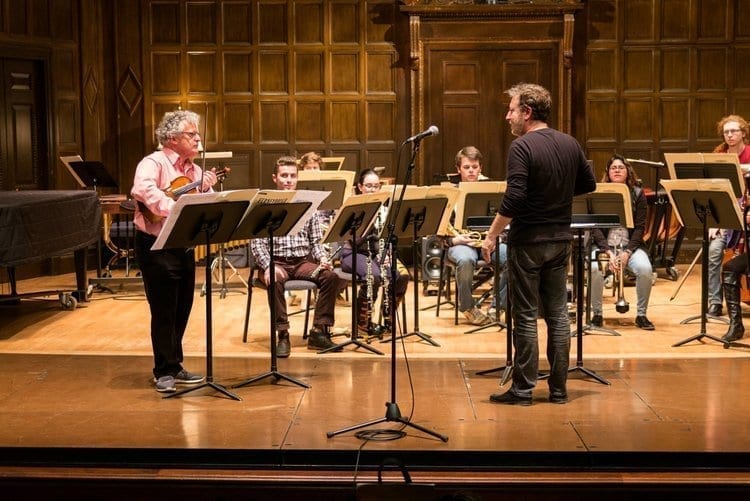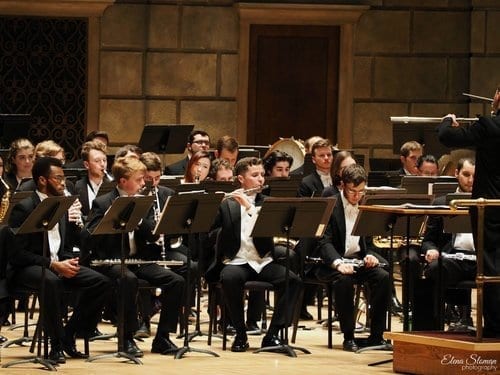“There is No Way to Exist in This World Without Music”
Villa Musica is proud to welcome our new flute instructor, Alex Ishov, to our faculty. Born to Russian parents, Alex is bilingual and has worked as a translator professionally and in his day-to-day life. He has also performed all around the world, and is currently pursuing a graduate degree at the University of California, San Diego. To read more about Alex and his specific accomplishments, head over to his faculty page https://villamusica.org/product/alex-ishov-flute/.
Growing up mainly between Philadelphia, PA, and St. Petersburg, Russia, Alex was exposed to music at a very young age. His mother had access to free music education all throughout her schooling, as is customary in Russia. Alex cites his mother’s passion for music as the starting point for his own musical journey, as under her influence he would attend concerts frequently in the United States and in Russia. When a move to Florida at age 10 made him feel the need to play music, he was inexplicably drawn to the flute. From there, the music would not be stopped and Alex soon picked up the saxophone, piano, drums, and the guitar.

From there, Alex focused mostly on the piano, saxophone, and, of course, the flute. As he continued studying, learning, and teaching, he also became an avid performer. And for Alex, there is something a little magical about performing. “I get so much energy out of performing and the feeling of being on stage. It is the ultimate mindful meditation for me. I think teaching has elements of that, where I try to bring that energy into lessons.” Often within the music world, performing and teaching seem like completely different endeavors. But Alex says that performing and teaching are not so different.
Alex highlights the mindfulness he experiences while talking about the connection between performing and teaching and about the relationships he has with his students. “I get this constant humbling grounding from teaching. It makes me think about the fundamental relationships we have with our instruments, about how we experience sound, and how we practice. I am always doing it when I perform, so it is only natural to share this with my students.” He constantly tries to bring this approach to his studio, so that his students can share in this inherent aspect of music and sound.
Also teaching undergraduate students at the University of California, San Diego, Alex says that he often asks his students to think of the last song they have heard, and how they connected with it. Ironically, he is often faced with blank stares, but he says that juxtaposition is exactly makes music so ingrained in our daily lives, even if we do not realize it. “There is no way to exist in this world without hearing music. Music is such an inherent part of being human, it is just such an inherent part of life. Performing and teaching music is just my way of shaping and connecting with sound. To make physical sound with other people is so satisfying to me, and to teach people who haven’t been able to experience that, it is so important.”

Alex performs in an ensemble (center)
Clearly understanding of the importance of music education, Alex says that the benefits from learning music extend much further beyond musical circles. There are numerous studies that indicate why you should study music, and how it can help you excel in more traditional fields, but Alex says that, “Music is one of the only subjects that gives very young adults and teenagers experiences and skills that will help them tackle the real world and the issues we face in ways they can understand.”
And Alex has had plenty of personal experience in using music to help make sense of the world in which he lives. Being a dual citizen in the United States and Russia, and with experience as a professional translator, Alex says that, “So far in my music career, I feel as if I have been a translator between different communities. My comfort and interest in moving between the jazz and classical and contemporary
communities comes from my comfort traveling between Russia and the United States. Existing in two parallel cultural streams, I have sought out those kinds of experiences in music as well.”
He also tells me that he translates these ideas to his students as well. “As an artist, as a musician, as a citizen, I try to practice what I preach and communicate to my students that it is okay to be in the middle of two distinct groups. That in finding those intersections, it is super empowering.” He says that music can be a beautiful way to find and connect these intersections as he discusses a new phenomena in academic music called Hybrid genres. He says, “While two different musicians [from completely different genres] might not want to create a new hybrid of their two genres, the idea of two highly competent musicians being able to listen and connect with each other’s work is why I try to connect with these intersections: to be able to share and learn from the musicianship of others, regardless of our differences.”
Finally, with Alex as a teacher at Villa Musica, his students can expect so much growth. He says his number one piece of advice to a budding musician is to trust themselves. “Trust that the work that you put in will pay off. You don’t know when that will happen, and it probably will be a long path, but once you are on it, music and what you learn can bring so much to the human experience.”
We can not wait to see what a difference Alex makes while teaching the Villa Musica community. His knowledge and curiosity are not limited to music, he says that, “I have the same curiosity for cooking as I do for music. Music and cooking are both for sharing and being able to enjoy them with others.” So the next time you see Alex in the lobby, say hello, ask him about his favorite bread to make, or even sign up for an initial lesson with him. https://villamusica.org/product/private-lessons-initial/


